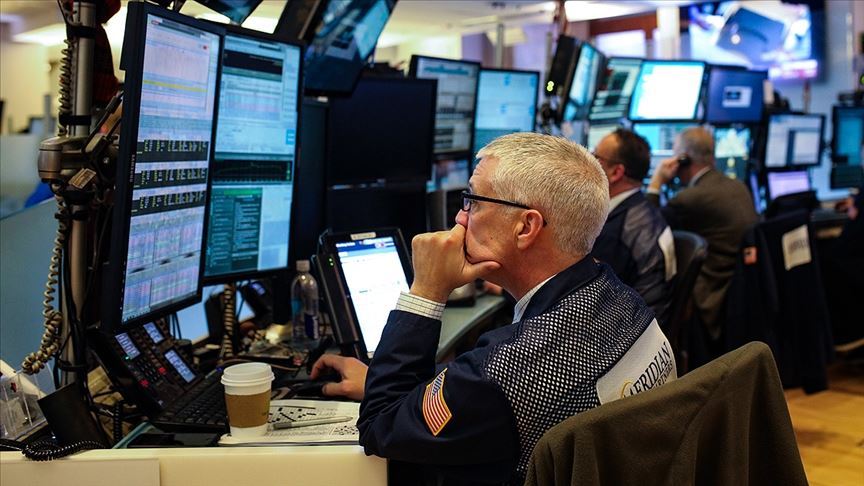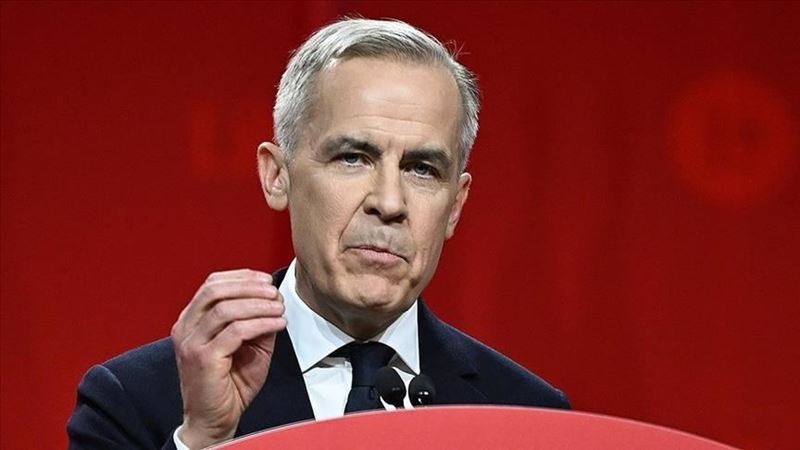In the stock markets, which followed a fluctuating course with the company's financial results announced in the first half of last week, the US Federal Reserve's (Fed) interest rate hike by 75 basis points on Wednesday in line with the expectations and signaling that it would follow a softer stance for the next period increased the risk appetite.
The fact that the US economy shrank by 0.9 percent in the second quarter, indicating that the country had entered a technical recession, although not officially, brought about a decrease in global dollar demand and a decrease in bond yields.
With these developments, the US 10-year bond yield decreased from 2.84 percent and stabilized at 2.67 percent, while the dollar index fell to 105.8 with a 0.7 percent depreciation on a weekly basis. While there were rapid increases in the commodity market with the decline in the dollar index, the barrel price of Brent oil gained close to 4% last week, closing at $103.3 with the effect of the increase in geopolitical risks.
While it is seen that the new week started cautiously with the manufacturing industry PMI data, which pointed to the decrease in demand in China and fell to the lowest level in 3 months, in terms of investor pricing, July inflation in Turkey and the Bank of England's interest rate decision abroad, as well as the Euro Area, were observed throughout the week. Unemployment in Germany, industrial production in Germany and non-farm employment data in the USA are expected to be decisive.
Stock markets followed a positive course with the positive reception of the company's financial results announced on Friday last week in the New York Stock Exchange. While the Dow Jones index rose 0.97 percent, the Nasdaq index rose 1.88 percent and the S&P 500 index rose 1.42 percent, it was seen that the indices gained an average of 4 percent on a weekly basis. Index futures contracts in the USA started the new week with a selling trend.
On the European side, increasing geopolitical risks and developments related to the energy crisis remained at the center of the agenda, while inflation in the Eurozone rose to historical levels with 8.9 percent in July. Following this development, the expectations that the European Central Bank (ECB) would raise interest rates by 50 basis points at its September meeting strengthened. With the positive financial results for the banking sector, the DAX 30 index gained 1.52 percent in Germany, the CAC 40 index gained 1.72 percent in France and the FTSE 100 index in the UK gained 1.06 percent on Friday, while the average increase in the indices on a weekly basis was 2 percent. found .5. While the euro/dollar parity was stabilized at the level of 1.02 after falling to the 1 limit last week, index futures contracts in Europe started the new week with sellers.
While the visit of the Speaker of the US House of Representatives Nancy Pelosi to the Indo-Pacific countries throughout Asia increased the perception of geopolitical risk, the manufacturing industry PMI in China fell by 1.2 points in July to 49, the lowest level in three months. The indication that the Chinese economy, which was experiencing shutdowns in the second quarter of the year due to the new type of coronavirus (Kovid-19) epidemic, has not recovered yet, strengthens the expectations that global demand will continue to slow down, while the manufacturing industry PMI in Japan decreased by 0.1 points to 52.1 in July.
Asian stock markets started the new week mixed after data that fell short of expectations. While the Shanghai composite index increased by 0.2 percent in China and the Nikkei 225 index in Japan by 0.6 percent near the closing, Hang Seng in Hong Kong with its continuing decline after the Chinese technology company Alibaba was added to the list of companies that are expected to be removed from the New York stock exchange. The index lost 0.2 percent.
Domestically, the BIST 100 index, which gained 1.93 percent on Friday last week, closed at 2,592.38 points, while the weekly increase of the index reached 3 percent. After closing at 17,9142 with an increase of 1 percent last week, the Dollar/TL started the new week at 17,9420 at the opening of the interbank market.
Analysts said that although the latest data released in the USA increased the concerns about the global recession, the expectations for a slower rate hike by the Fed and the announced second quarter company financial results supported the stock markets.
Stating that the Fed officials' assessments about the recession and the upcoming monetary policy will be closely monitored, analysts stated that the BoE's interest rate decision will be followed, as well as the intense data agenda, and that news flows on Russia-Ukraine, China-US and Kosovo-Serbia tensions will be critical. he did.
Analysts pointed out that the manufacturing industry PMI data to be announced around the world came to the fore in today's data agenda, and stated that the level of 2.620 in the BIST 100 index was technically a resistance and 2.540 points was a support.
The data to be followed in the markets today are as follows:
10.00 Turkey, manufacturing industry PMI for July
10.55 Germany, manufacturing PMI for July
11.00 Eurozone, manufacturing PMI for July
12.00 Eurozone, unemployment rate in June
16.45 US, manufacturing PMI for July
17.00 USA, July ISM manufacturing PMI









Comments
No comment yet.